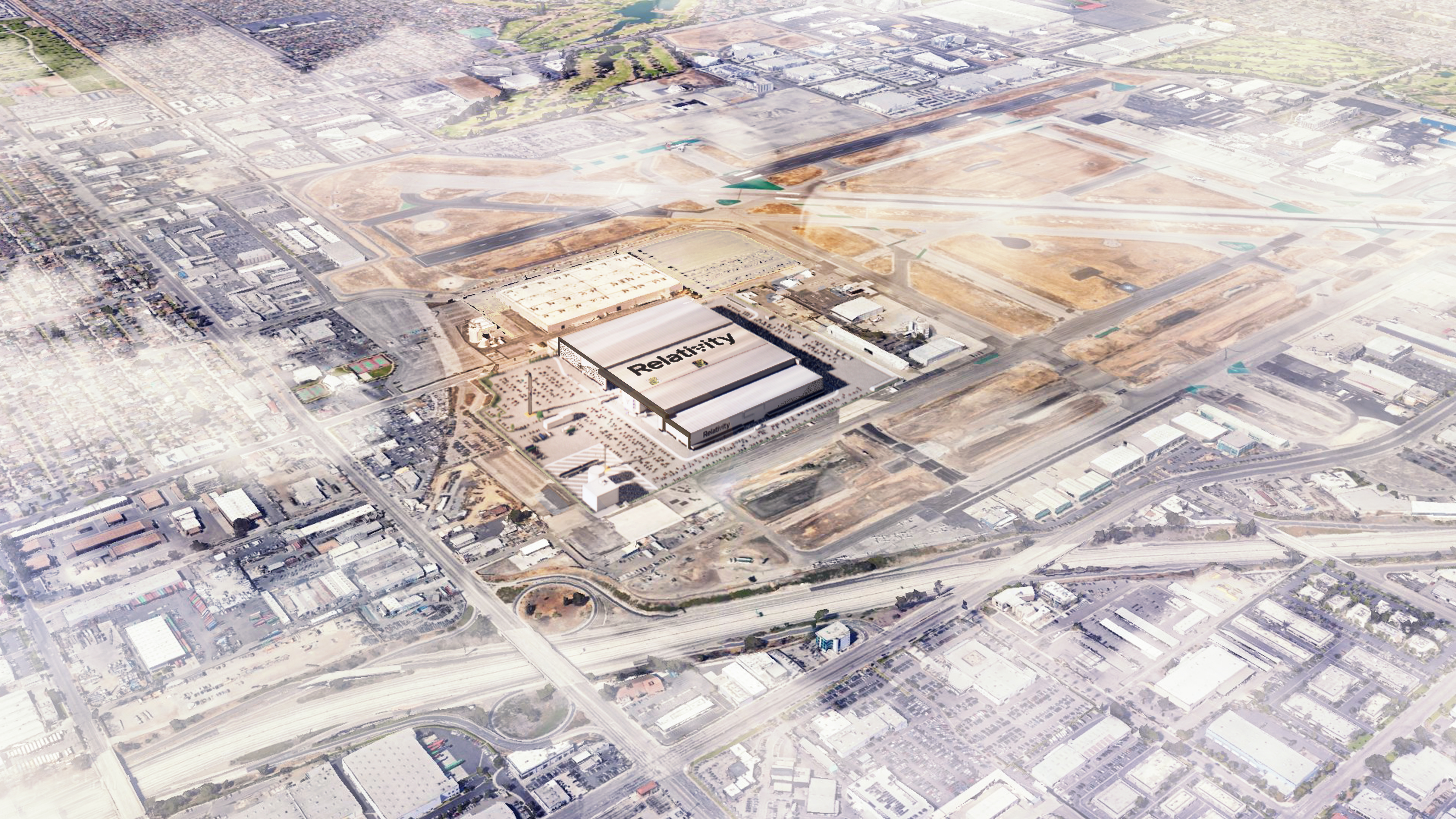Fresh off the heels of a $650 million Series E funding round, 3D printed rocket startup Relativity Space is now preparing to increase production capacity by a factor of ten, with the opening of a 1 million square-foot factory headquarters in Long Beach, California.
Relativity’s current factory, a 150,000 square-foot facility also in Long Beach, will remain in production. That factory will continue to focus on the company’s first rocket, the expendable Terran 1 that’s designed for smaller payloads. The new facility is aimed at building out the development and production of Terran R, Relativity’s heavy-lift, fully-reusable two stage rocket. Neither rocket has seen orbit yet, but Relativity aims to launch Terran 1 in June 2022 and Terran R as early as 2024.
Along with the factory opening, which is slated for January 2022, the company is also planning a hiring push – Relativity hopes to add at least 200 employees by the end of this year, CEO Tim Ellis told TechCrunch. The new facility has a labor force capacity of over 2,000, so “we’re certainly going to get into the thousands [of new hires] as we’re launching Terran One and then kicking off Terran R development as well,” Ellis said.

Image Credits: Relativity Space (opens in a new window)
The company’s proprietary 3D printers, Stargate, can print either of the company’s two rockets. But they’re capable of much more than that – theoretically, at least. The Terran R is reusable, so the company will likely need to manufacture far fewer rockets than what the massive new facility will be capable of producing. So that begs the question: what are all those printers going to make?
Ellis alluded to other possibilities. “While it’s building Terran R, and doing Terran R development initially, certainly over time we’ll be able to continually upgrade and reconfigure this factory of the future to be able to build whatever else in aerospace that we’d go into next,” he said. But he stayed mum on exactly what that might look like.
“We will actually have a lot of extra print capacity over time, because we’ll be reusing Terran R. So at that point, we’ll have a ton of printers with a bunch of free time. You could imagine what one does, once you have that capability, you just keep diving into the next product to disrupt.”
In addition to the Stargate printers, the space will also house customized DMLS metal printers, a metallurgical laboratory, machine shop, and a mission control center. In the mission control center, true to its name, engineers and mission operators will be able to monitor and manage launches that take place in Cape Canaveral, Florida or Vandenberg Space Force Base in California.
Relativity is leasing the space “for a long period of time” from property owner Goodman Group, Ellis said. The site was previously being used by Boeing to manufacture C-17 cargo military planes.
from Startups – TechCrunch https://ift.tt/3hjjXzu
Comments
Post a Comment